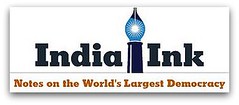Partly because of our colonial past and partly because of abominable present, the BBC has become the voice of reason and authority for most literate Indians, journalists and otherwise. Radio, television or internet, in English, Hindi or Urdu, we devour “Auntie” (as the Beeb is called in old bilayati) and can’t tire of repeating how Rajiv Gandhi switched it on to confirm intelligence reports of the assassination of his mother, Indira.
But is the BBC all that it is made out to be—fair, balanced, objective, non-partisan?It is, but probably isn’t as it is used to be. “Can we trust the BBC?” asks Robert Aitken, who had a 25-year spell at Bush House, in a new book and rakes up the old bogey about liberal bias.
“I think the BBC, by and large, lines up behind what I would term the progressive consensus on whatever issue one happens to be talking about. So for instance, during the era of the Soviet Union and the Cold War, the BBC was too willing to find excuses for Soviet misdeeds and excesses; was too sympathetic for the notion of unilateral nuclear disarmament; was too hostile and suspicious of the motives of the US.
“In other words, it was too skeptical of the West and its motives; not skeptical enough of the Soviet Union and its motives. And I think that in bending over backwards to be fair, it often tips the other way, and is actually unfair to our side if you like.”
Read the full article here: A powerfully corrosive internal culture







